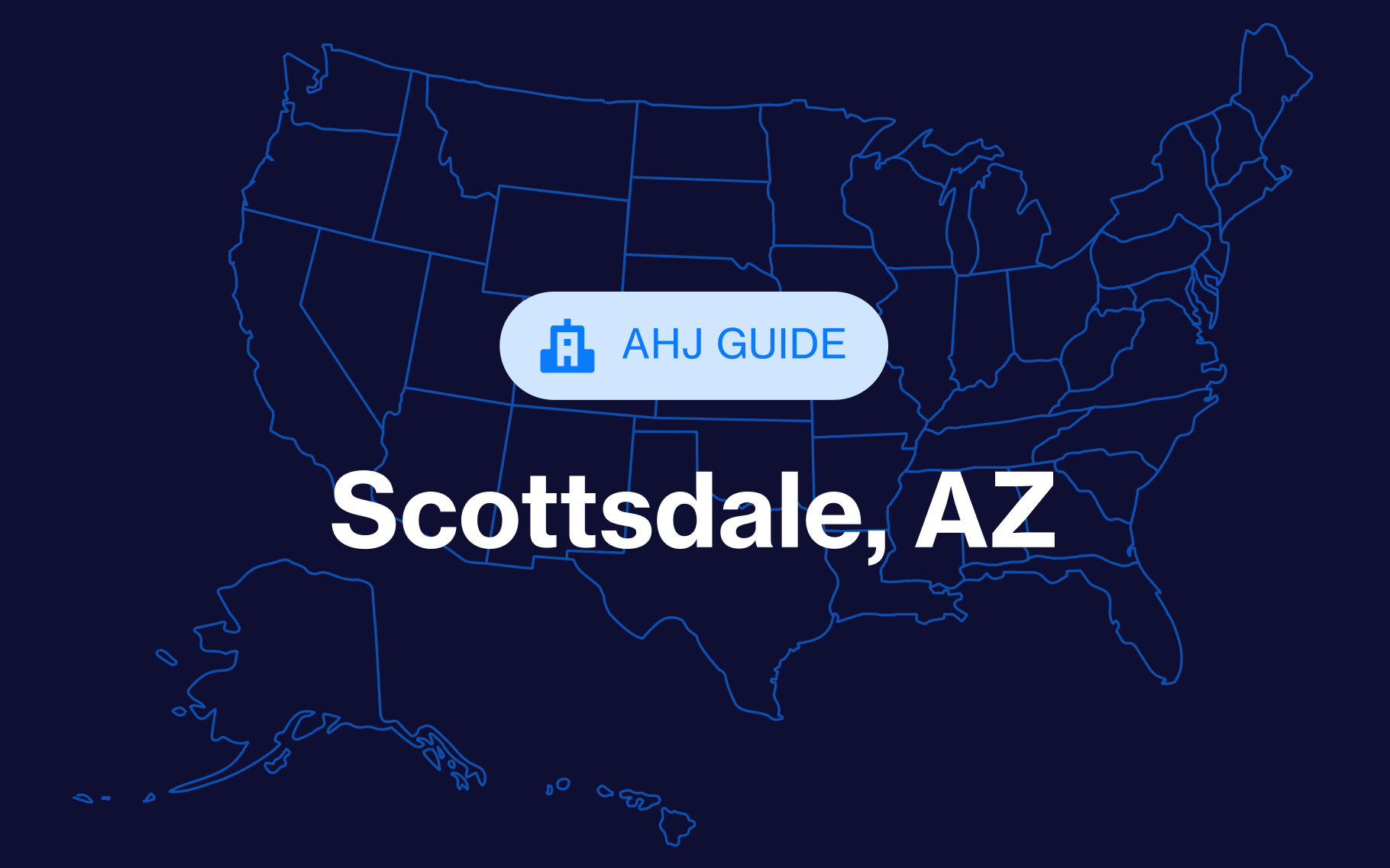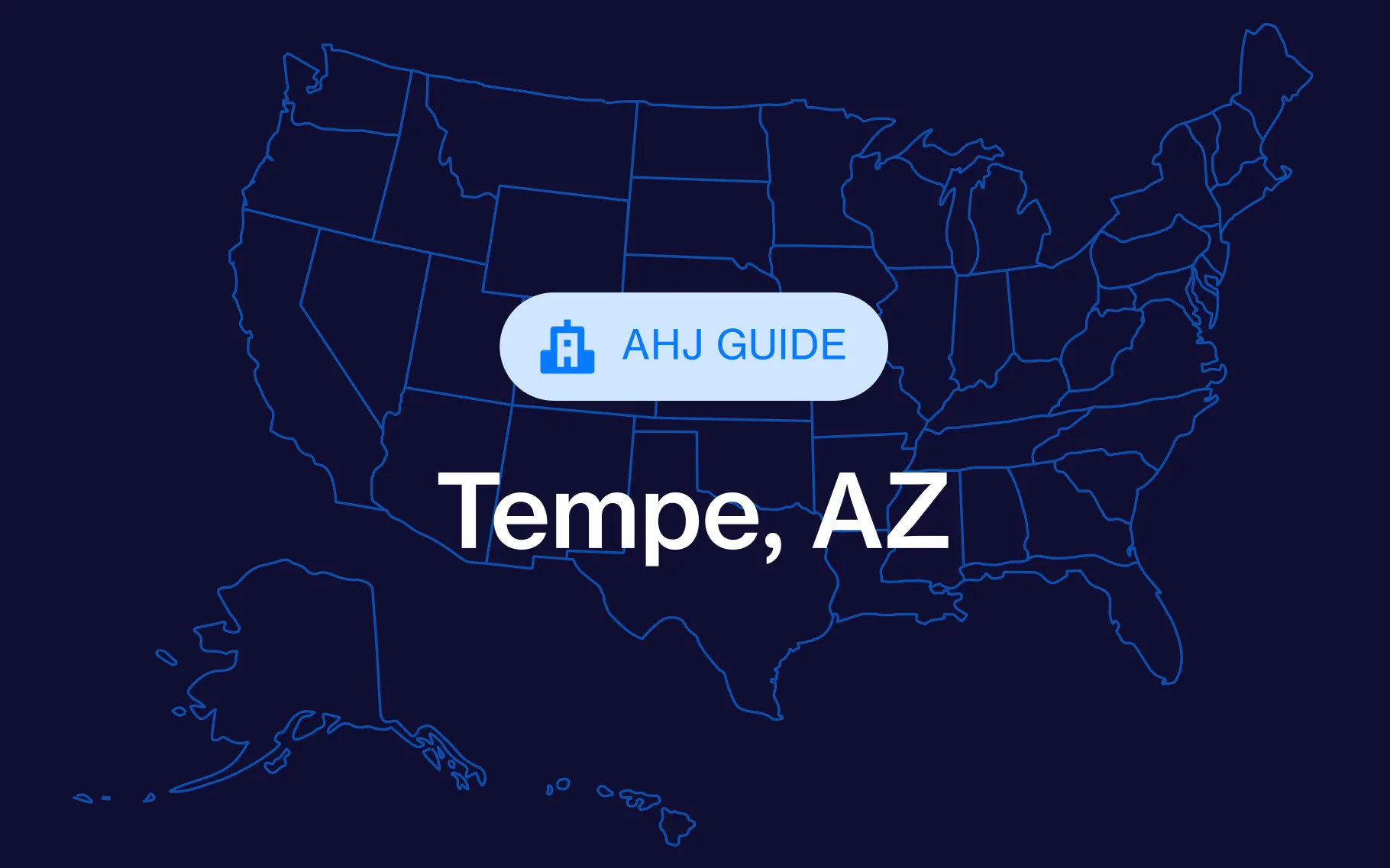If you're expanding your operations into Arizona, understanding the state's building permit landscape is essential. From Phoenix to Flagstaff, jurisdictions across the state have varying codes, requirements, and permitting processes.
Whether you're a residential builder, a commercial contractor, or a home services contractor, we’re breaking down what you need to know to confidently navigate the Arizona building permit process.
What requires a building permit in Arizona?
Common projects that typically require a building permit:
For minor work — like painting, flooring replacement, or minor non-structural repairs — a permit may not be necessary, but always check with the local building department for clarity.
Who issues building permits in Arizona?
Building permits in Arizona are issued at the local level by city, town, or county building departments. There is no centralized statewide permitting agency.
For example:
- Phoenix: Phoenix Planning and Development Department
- Tucson: Tucson Development Services
- Maricopa County: Maricopa County Planning and Development
- Pima County: Pima County Development Services
When working in unincorporated areas, permitting will typically fall under the jurisdiction of the relevant county.
Arizona building permit requirements
Each city or county will publish its own set of submittal requirements. However, some general documentation and processes are standard across the state.
Typical permit application requirements:
- Completed permit application form
- Site plans and construction drawings
- Energy compliance documentation (where applicable)
- Structural calculations (for load-bearing work)
- Fees paid upfront or at plan review
Note: Arizona adheres to the 2018 International Building Code (IBC) and International Residential Code (IRC), but adoption may vary by jurisdiction. Local amendments often apply, so always check local codes.
Arizona building permit costs
Permit fees in Arizona vary significantly depending on the project type, valuation, and jurisdiction. Some cities base fees on project valuation, while others have flat-rate or square footage-based fees.
Here are a few examples:
You may also encounter impact fees, utility connection fees, and other assessments for larger or new construction projects.
Unique considerations when permitting in Arizona
Permitting in Arizona comes with some state-specific and environmental factors worth noting:
Desert climate and energy efficiency
Arizona’s extreme heat means strict adherence to energy codes and insulation requirements. Be sure your documentation includes relevant energy compliance forms.
Soil and grading issues
In some parts of Arizona, expansive clay soils can cause structural shifting. Jurisdictions like Scottsdale may require geotechnical reports.
Wildfire and flood zones
Certain regions fall within wildland-urban interface or flood hazard zones, triggering additional permitting requirements and agency reviews.
Tribal land considerations
Some Arizona construction may occur on or near Native American reservations. In such cases, tribal authority approval may be required in addition to local permits.
HOA regulations
While not enforced by the city or county, many residences are in homeowners’ associations with strict construction rules. These may affect permit approval timelines.
How to get a building permit in Arizona
The process for obtaining an Arizona building permit varies by jurisdiction, but generally follows these steps:
- Pre-application meeting (optional)
For large or complex projects, schedule a pre-submittal meeting with the jurisdiction.
- Prepare permit documents
Gather required plans, forms, and supporting documents. Make sure they meet local submittal standards.
- Submit application
Apply via the jurisdiction’s online portal or in person (varies). Online permitting is common in larger cities.
- Plan review
The building department reviews your submittal for code compliance. This may involve multiple departments (e.g., zoning, fire, engineering).
- Respond to corrections
If the plans are returned with comments, address them and resubmit.
- Permit issuance
Once approved, pay the remaining fees and receive your permit.
- Inspections
Schedule required inspections at each phase of construction.
- Final approval
After the final inspection, a certificate of occupancy or final sign-off is issued.








